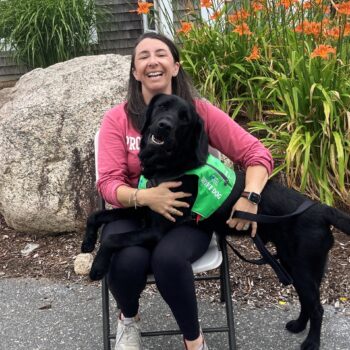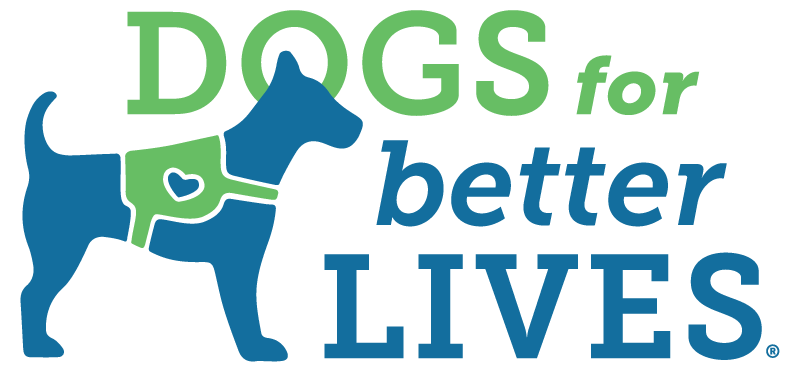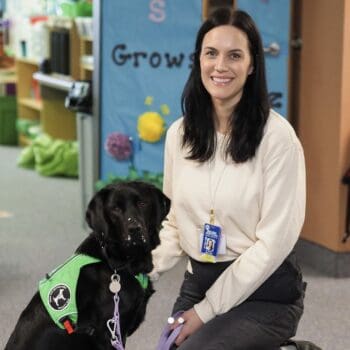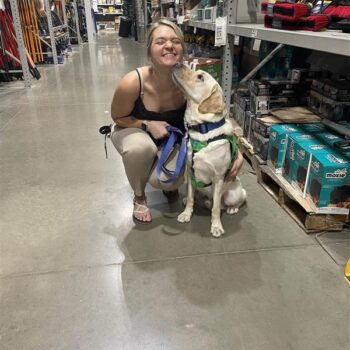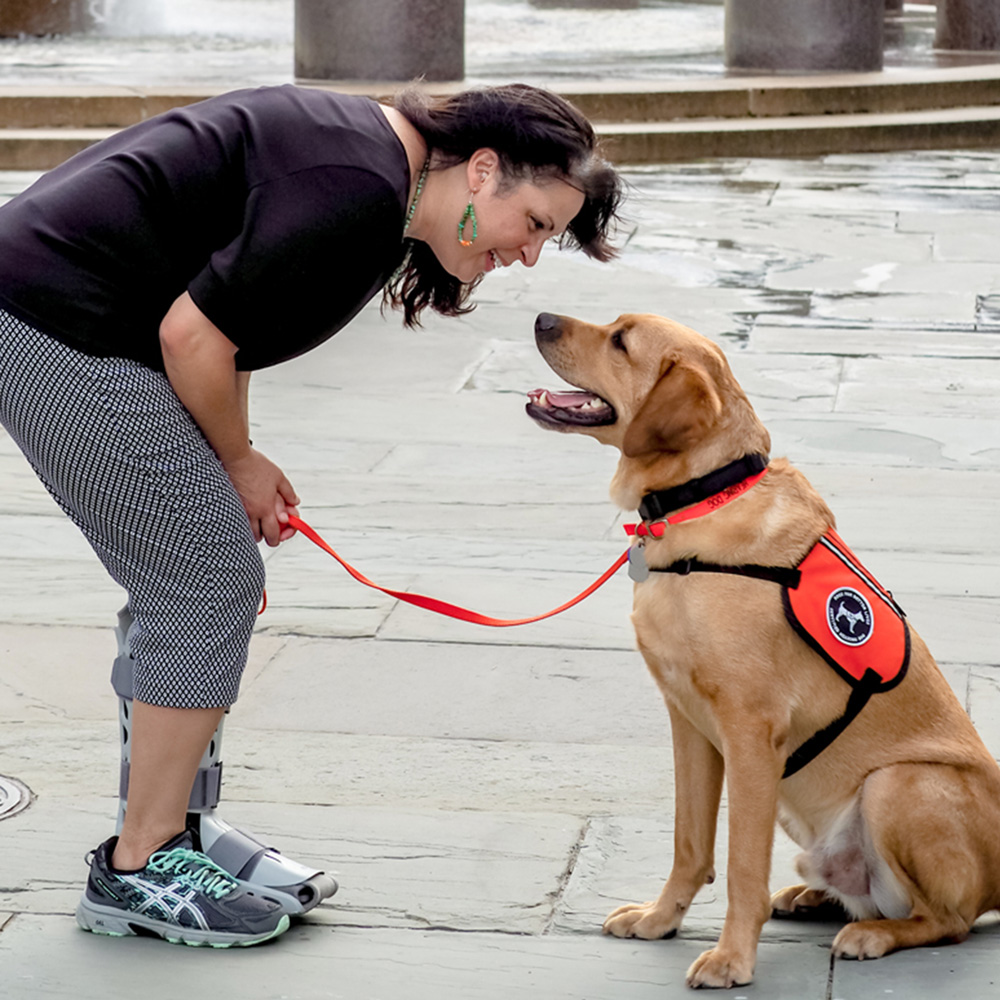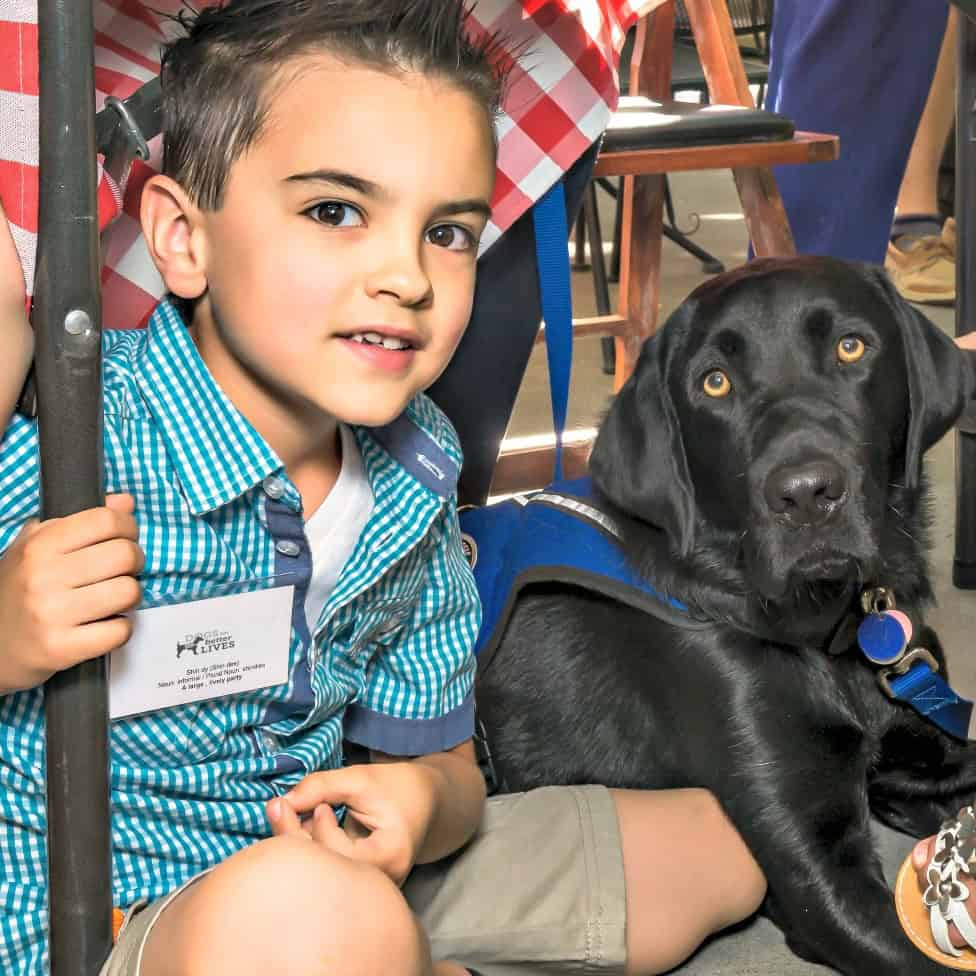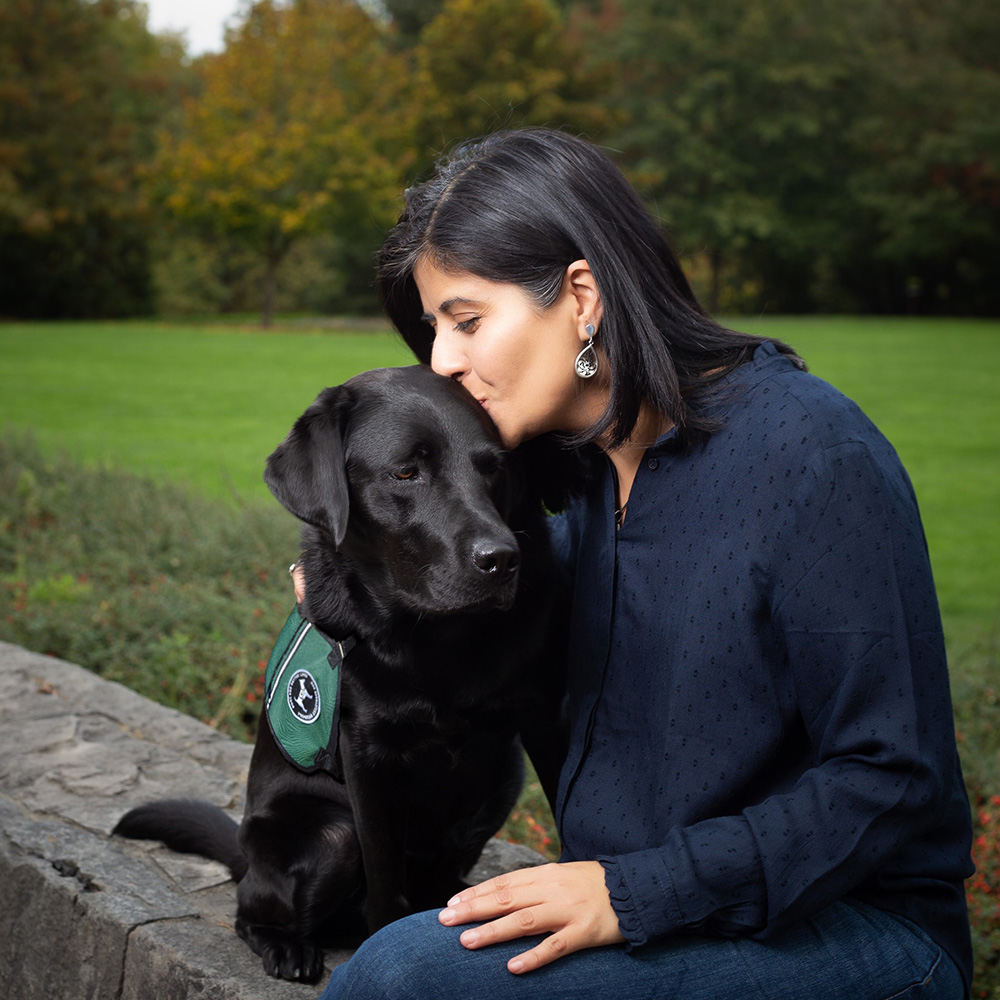FACILITY DOGS
Key Benefits of Facility Dogs
- Enhanced Engagement: Encourages participation in therapies or classroom activities.
- Anxiety Reduction: Provides calming support through trained skills, such as deep pressure.
- Motivation and Cooperation: Inspire clients and students to collaborate and build confidence.
Capabilities and Skills
Facility Dogs are trained in a variety of interactive behaviors and tasks to maximize their impact in professional environments:
- Interactive Behaviors: Encourage engagement and participation for students and patients by integrating skills into therapies or lesson plans.
- Deep Pressure Techniques: When utilized with people with disabilities or vulnerable populations, these skills provide a calming effect and can help reduce anxiety.
- Skill Development: Facility Dogs are trained specific behaviors that can be integrated into therapies that promote development of fine and gross motor skills.
- Customized Support: Tailored placements ensure dogs meet the unique needs of the professional and their clients.
Learn more about the most common types of Facility Dogs below.
Eligibility Requirements
To qualify for a Facility Dog, applicants must meet the following criteria:
- Be employed in a role that directly serves individuals with disabilities or vulnerable populations, such as a therapist, teacher, counselor, or forensic interviewer.
- Obtain written authorization from their employer or supervisor to include a Facility Dog in their work environment.
- Be open to a placement plan based on the specific needs of their clients and work setting.
Stories of Impact
DARCI & TULIP
STEPHANIE & CLIFF
KRISTIN & MAJOR
Jessica and Facility Dog Lander's Story
Types of Facility Dogs
Dogs for Better Lives places Facility Dogs with professionals across a range of settings. The program customizes each placement to ensure the dog’s skills align with the needs of the handler and the populations they serve. Examples of placements include:
- Educational Environments: Supporting teachers to improve classroom engagement.
- Therapeutic Practices: Assisting occupational or physical therapists in skill-building activities.
- Forensic Settings: Helping forensic interviewers create a calming atmosphere for children or vulnerable individuals.
Application Process
Submit an Application:
Click on the ‘Get Started’ button below to fill out and submit an application. Applicants who meet the eligibility requirements will be notified via email of the next step. If you have any questions about the application, please email info@dogsforbetterlives.org or call 541-826-9220.
Initial Screening:
If eligibility requirements are met, then you will be requested to submit authorization from your employer. Please note, all applicants for Facility Dogs must work a minimum of 20 hours/week with students/clients with disabilities and have employer authorization. This information, along with the application, will be reviewed by our Screening Committee.
Interview:
In-home and workplace interviews provide us with additional information on the applicants’ needs and lifestyles. A Dogs for Better Lives associate conducts these interviews. All members of the household must be present for the in-home portion of the interview.
Acceptance or Denial:
After the interview is completed, the entire application packet will be carefully reviewed and a final decision made as to whether or not one of our professionally trained dogs is suitable for the applicant.
Waiting Period:
The waiting period for a Facility Dog is currently 36 months from the time the person is accepted to receive the dog.
Match and Placement:
Facility Dogs are accompanied by a trainer to the home and workplace of the client. The trainer teaches the client how to keep the dog working consistently and how to maintain the dog’s obedience training.
Post Placement:
Following the placement, regular communication is required. The client reports regularly on the progress of the dog. When problems arise or the client has any questions, the trainer offers help and answers questions. In-home follow up is also done.
Dogs for Better Lives provides follow-up support for the life of the tea
Dogs for Better Lives is an equal opportunity organization who does not and shall not unlawfully discriminate based upon race, political orientation, religion, gender, gender expression, sexual orientation, age, national origin, disability, marital status, military status, or for any discriminatory reason or other status prohibited by applicable law.
Apply For A Dog
Before you decide to apply for a Facility Dog, please read about our Facility Dog Program Qualifications.
